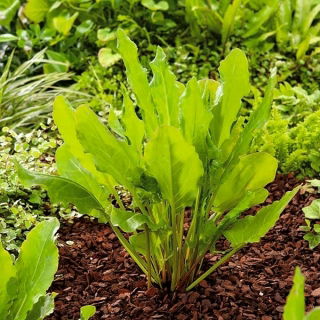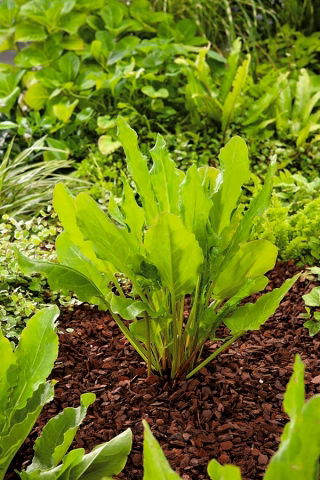- US Dollars ($)
- Euro (€)
- GB Pound (£)
- Chinese Yuan (元)
- Swedish krona (kr)
- Russian ruble (₽)
- Hong Kong dollar (HK$)
- Norwegian krone (kr)
- Indian rupee (₹)
- New Taiwan dollar (NT$)
- Danish krone (kr)
- Hungarian forint (Ft)
- Saudi riyal (SR)
- Bulgarian lev (лв)
- Czech koruna (Kč)
- Israeli shekel (₪)
- Indonesian rupiah (Rp)
- Japanese yen (¥)
- Korean won (₩)
- Malaysian ringgit (RM)
- Romanian leu (leu)
- Swiss franc (Fr.)
- Serbian dinar (din)
- Vietnamese đồng (₫)
- Ukrainian hryvnia (₴)
- Turkish lira (₺)
- Thai baht (฿)
- CAD Dollars ($)
- English
- German - Deutsch
- French - Français
- Spanish - Español
- Italian - Italiano
- Swedish - Svenska
- Russian - Русский
- Norwegian - Norsk
- Danish - Dansk
- Nederlands
- Estonian - Eesti keel
- Finnish - Suomalainen
- Hungarian - Magyar
- Latvian - Latviešu valoda
- Lithuanian - Lietuvių
- Portuguese - Português
- Chinese - 中文
- العربية - Arab-c
- Bulgarian - български
- Czech - Čeština
- Greek - Ελληνικά
- پارسی - Persian
- עברית - Abrit
- Croatian - Hrvatski
- Indonesian - Bahasa Indonesia
- Japan - 日本語
- Korean - 한국어
- Malay - Melayu
- Romanian - Română
- Slovak - Slovák
- Slovenian - Slovenščina
- Thai - ไทย
- Turkish - Türkçe
- Ukrainian - Українська
- Vietnamese - Tiếng Việt
- Categories
-
Seeds
-
Vegetable Seeds
-
Flower Seeds
-
- Ageratum, Flossflower seeds
- Alyssum seeds
- Amaranth Seeds
- Aquilegia, Columbine seeds
- Aster seeds
- Aubrieta Seeds
- Begonia seeds
- Bellis perennis, Daisy seeds
- Californian Poppy Seeds
- Campanula, Bellflower seeds
- Celosia, Cocksbomb seeds
- Centaurea, Cornflower seeds
- Chrysanthemum, Painted Daisy seeds
- Coleus seeds
- Convolvulus seeds
- Coreopsis seeds
- Cosmos seeds
-
- Datura seeds
- Dianthus, Carnation seeds
- Echinacea, Coneflower seeds
- Flower seed mixtures
- Forget me not seeds
- Foxglove seeds
- Gaillardia Seeds
- Gazania seeds
- Geranium, Pelargonium seeds
- Godetia seeds
- Gourd, Ornamental squash seeds
- Gypsophila, Baby's Breath seeds
- Hollyhock seeds
- Impatiens seeds
- Ipomoea, Morning glory seeds
- Calabash, Bottle Gourd seeds
- Larkspur, Delphinium seeds
-
- Limonium, Statice seeds
- Lobelia seeds
- Lupin, Lupine seeds
- Lychnis, Catchfly seeds
- Mallow Seeds
- Marigold, Tagetes seeds
- Milkweed Seeds
- Nasturtium seeds
- Nemesia seeds
- Nepeta, catmint seeds
- Nicotiana, Ornamental Tobacco seeds
- Nigella, Love in a mist seeds
- Pansy seeds
- Petunia and Surfinia seeds
- Phlox seeds
- Poppy seeds
- Primula, Primrose seeds
-
- Red Valerian, Centranthus Seeds
- Ricinus, Castor bean seeds
- Runner bean seeds
- Safflower seeds
- Salvia, Ornamental sage seeds
- Snapdragon Seeds
- Stock seeds
- Strawflower, Golden everlasting seeds
- Sunflower seeds
- Sweet pea seeds
- Tunbergia, Black-eyed Susan Vine seeds
- Verbascum, Mullein seeds
- Verbena seeds
- Veronica, Speedwell seeds
- Viola, Violet seeds
- Zinnia seeds
-
- Herb Seeds
- Sprouting Seeds
-
Flower Bulbs
-
Garden Equipment
-
At home
- Around home
-
Fertilizers
-
- All-purpose fertilizers
- Autumn and winter fertilizers
- Blueberry fertilizers
- Boxwood fertilizers
- Bulb plants' fertilizers
- Grass and lawn fertilizers
- Citrus plant fertilizers
- Compost
- Conifer fertilizers
- Dolomite and lime fertilizers
- Dry powder fertilizers
- Fertilizers for balcony and terrace plants
- Fertilizers for moss-infected lawns
- Fertilizers in pump sprayers
-
- Fertilizers in watering cans
- Fertilizers sticks
- Fertilizers with leaf shine
- Flowering plant fertilizers
- Fruit fertilizers
- Fruit tree fertilizers
- Garden plant fertilizers
- Gel fertilizers
- Geranium fertilizers
- Green plant fertilizers
- Herb fertilizers
- Home plant fertilizers
- Hydrangea fertilizers
- Lavender fertilizers
-
Sorrel 'Belleville' is an incredibly valuable vegetable that deserves a spot in every garden. This perennial plant is distinguished by its large, broad, light green leaves that impart a unique, tangy flavour to any dish. It is ideal as a base for traditional sorrel soup, but small amounts of fresh leaves can also enhance the taste of salads and slaws. Thanks to its medium early yield, 'Belleville' sorrel allows you to enjoy harvests as early as spring and also in early autumn.
Sowing
When cultivating sorrel, careful soil preparation before sowing is crucial. The seeds should be evenly distributed to ensure uniform plant growth. It is important to ensure that the soil is well loosened and free from weeds, providing young plants with the right conditions for development.
Sowing Depth
Sow sorrel seeds at a depth of about 0.5 cm. This depth provides optimal germination and growth conditions while protecting the seeds from drying out and wind.
Direct Sowing Period
When to sow common sorrel seeds directly into the ground? The best periods for sowing are early spring, from March to April, and late summer, in August. This timing allows the plants enough time to root and develop before the cooler days arrive.
Plant Spacing
For common sorrel 'Belleville', a spacing of 30-40 cm between rows and about 4 cm between plants is recommended. This arrangement provides the plants with adequate space for growth and facilitates care, while optimising access to light and nutrients.
Site Conditions
Sorrel prefers sunny or partly shaded locations and fertile, moist soils. It thrives best in soils with a slightly acidic to neutral pH. Regular watering, especially during dry spells, will ensure the leaves remain juicy and full of flavour.
Growing Tips
In sorrel cultivation, it is important to regularly remove weeds and loosen the soil around the plants. Using natural fertilisers is also beneficial, enriching the soil with essential nutrients. Sorrel is resistant to low temperatures, making it an ideal choice for cultivation in our climate.
Harvest Period
The harvest of 'Belleville' sorrel can start from April and continue until June, and also from September to October. Regular leaf harvesting stimulates the plant to produce new shoots, ensuring continuous yields.
Usage
Common sorrel 'Belleville' is an excellent ingredient for soups, salads, and slaws. Its tangy taste perfectly complements a variety of dishes, adding originality and freshness. It can also be used as an addition to meat and fish dishes, enhancing their flavour and aroma.
Why Buy from Garden Seeds Market
Purchasing seeds from Garden Seeds Market guarantees the highest quality and ensures that every cultivation will be successful. 'Belleville' sorrel seeds come from thoroughly checked sources and undergo rigorous quality tests to ensure the highest standard. Customers appreciate the fast delivery and professional service, as confirmed by numerous positive reviews. With offered promotions and attractive prices, buying from Garden Seeds Market is not only an investment in health but also a savings.
The package contains 500 g of seeds. The packaging includes information on cultivation guidelines and the sow-by date.
New


My account
Store
Customer information
Information

© -2025 Gardenseedsmarket.




